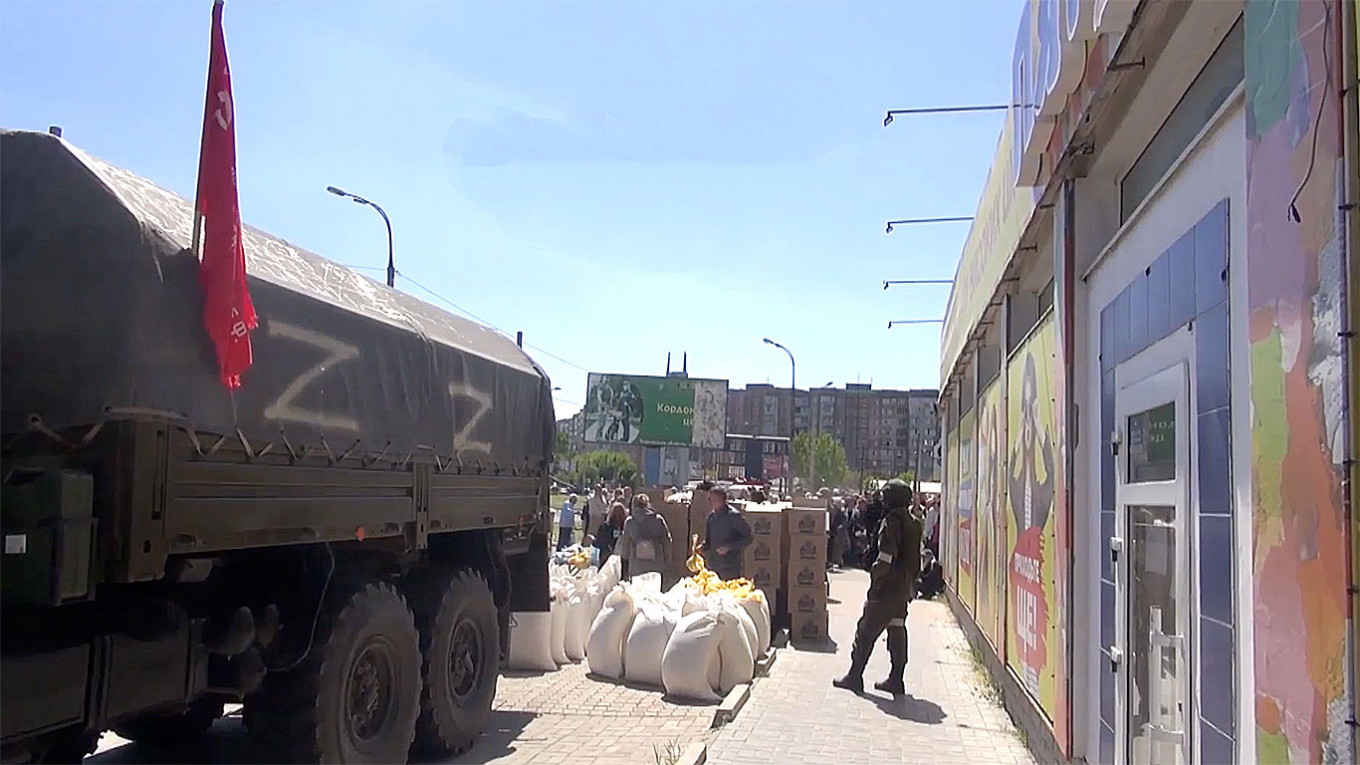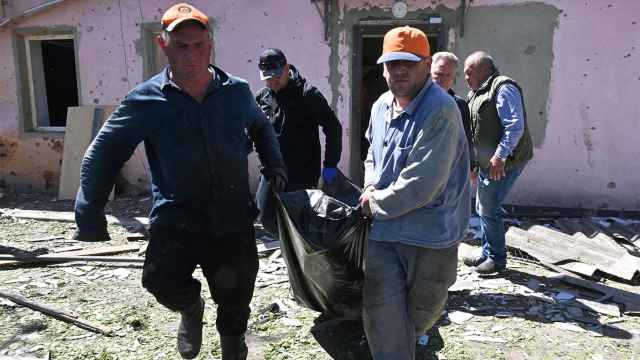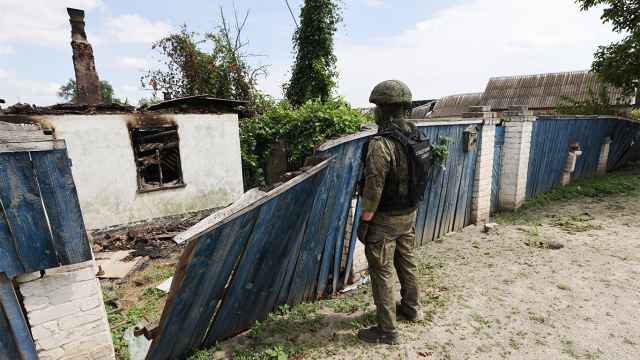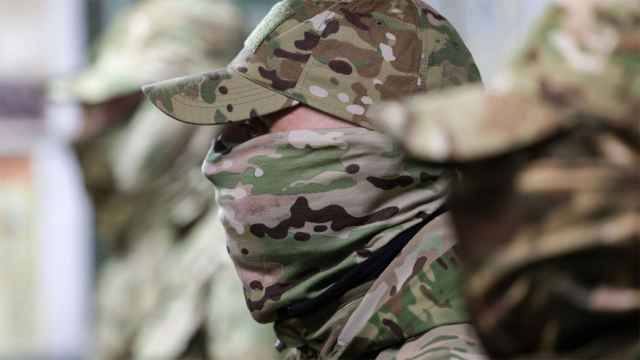Officials in Russian-occupied Kherson will petition the Kremlin to formally recognize the southern Ukrainian region as part of the Russian Federation, the state-run RIA Novosti news agency reported Wednesday.
The Russian military gained control of the Kherson region in late April, replacing its Ukrainian leadership with a pro-Moscow “military-civilian administration” and transitioning to the Russian ruble.
The Kremlin neither confirmed nor denied plans to annex Kherson, saying instead that the decision would be “up to local residents.” Kremlin spokesman Dmitry Peskov claimed that the process would be “absolutely clear and legitimate” and drew parallels with the Ukrainian peninsula of Crimea, which Russia annexed in 2014 after holding a referendum that the United Nations General Assembly later declared as invalid.
Earlier Wednesday, a senior official for the Russian administration in annexed Crimea said he had “no doubt” that newly occupied territories in southern Ukraine would be absorbed by Russia.
Georgiy Muradov, Crimea’s permanent representative under President Vladimir Putin, told RIA Novosti that Russians and Ukrainians shared a “common cultural code.”
“Civil-military administrations are being formed in these [occupied Ukrainian] territories, Russian TV channels have arrived, Russian textbooks have appeared in schools and the Russian ruble is successfully entering economic life in the region,” he said.
Despite other setbacks in its almost three-month invasion of Ukraine, Russia has achieved at least one of its early primary objectives: seizing a land bridge to connect mainland Russia to annexed Crimea.
Occupied Kherson, as well as the Pryazovske region on the Sea of Azov, reportedly began trading with Crimea shortly after Russian forces installed pro-Moscow administrations in the area.
A Message from The Moscow Times:
Dear readers,
We are facing unprecedented challenges. Russia's Prosecutor General's Office has designated The Moscow Times as an "undesirable" organization, criminalizing our work and putting our staff at risk of prosecution. This follows our earlier unjust labeling as a "foreign agent."
These actions are direct attempts to silence independent journalism in Russia. The authorities claim our work "discredits the decisions of the Russian leadership." We see things differently: we strive to provide accurate, unbiased reporting on Russia.
We, the journalists of The Moscow Times, refuse to be silenced. But to continue our work, we need your help.
Your support, no matter how small, makes a world of difference. If you can, please support us monthly starting from just $2. It's quick to set up, and every contribution makes a significant impact.
By supporting The Moscow Times, you're defending open, independent journalism in the face of repression. Thank you for standing with us.
Remind me later.






